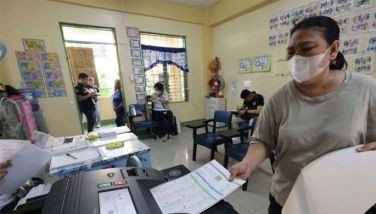Pinay first Asian female in ICANN board
MANILA, Philippines - The appointment of Filipina ICT pundit and entrepreneur Judith Duavit-Vazquez to the board of the powerful Internet Corporation of Assigned Names and Numbers (ICANN) brings many new aspects to the Internet.
In particular, Vasquez’s presence gives a fresh outlook for the organization’s plans to ensure that the Internet will be made available to everyone.
Vasquez will be the first Asian female to become a member of the ICANN Board of Directors, beating 86 other possible candidates for the position. She is also the first Filipino to be conferred the position.
She was officially appointed by the ICANN’s Nominating Committee last Aug. 5 and will officially occupy her seat at the ICANN Annual General Meeting on Oct. 28 in Dakar, Senegal.
Also joining Vasquez on the ICANN Board of Directors is Dr. Stephen Crocker, Internet infrastructure luminary and initiator of the Internet Engineering Task Force (IETF) Request for Comments (RFC) series. Crocker is chairman of the ICANN Board.
Vasquez, who is currently a director for Filipino broadcast company GMA Network, will serve her first term as ICANN Board member from October 2011 to October 2014, a three-year stint that will have her contribute to the decisions that will mark the future of the Global Internet.
Vasquez is considered one of the pioneers in Internet connectivity in the Philippines after establishing the first ICT-ready building, the 45-floor The Peak in Makati City in 1995. She is also credited for having laid the first fiber in Makati’s Central Business District in 1995. It is this infrastructure that was used for the first commercial Internet service by Mozcom, ISP pioneer, and Unionbank, Internet banking forerunner.
In addition, she is the founder of neutral telecommunications provider PHCOLO Inc. and owner of the largest neutral telecommunications tower in the country.
One of her advocacies is to provide secure and reliable connectivity when and where it is needed. According to her, a country’s level of development can be measured by accessibility to basic infrastructure, which should include communication emphasizing the Internet as a parallel and virtual highway to any cybernetic library or information pool in the world.
- Latest

























